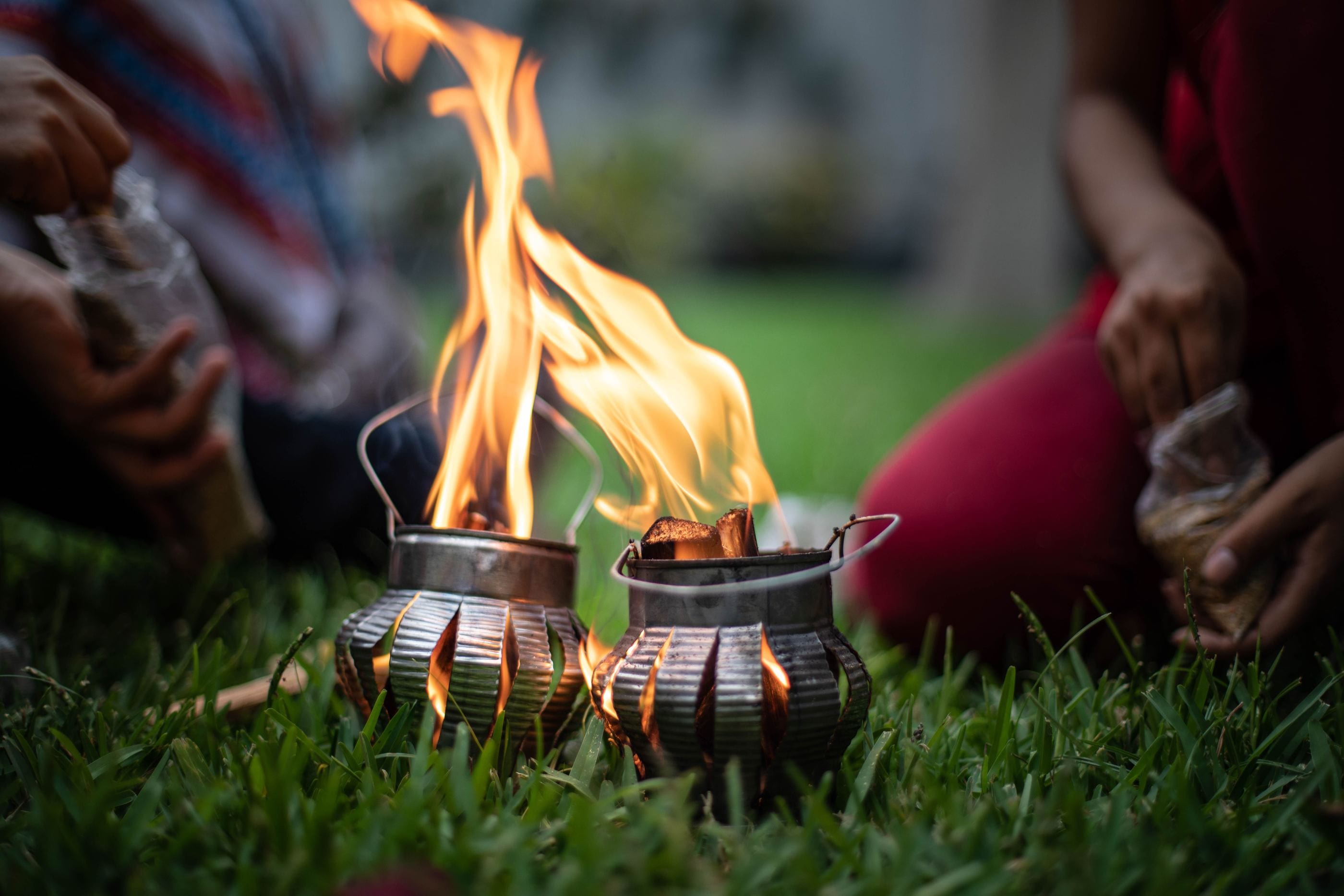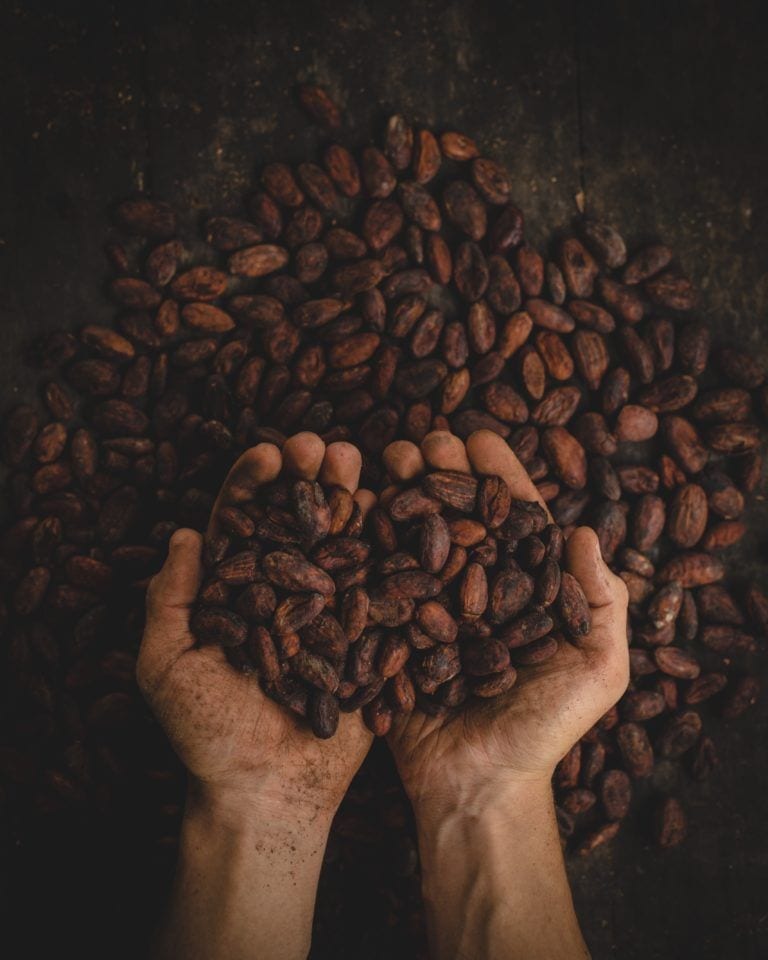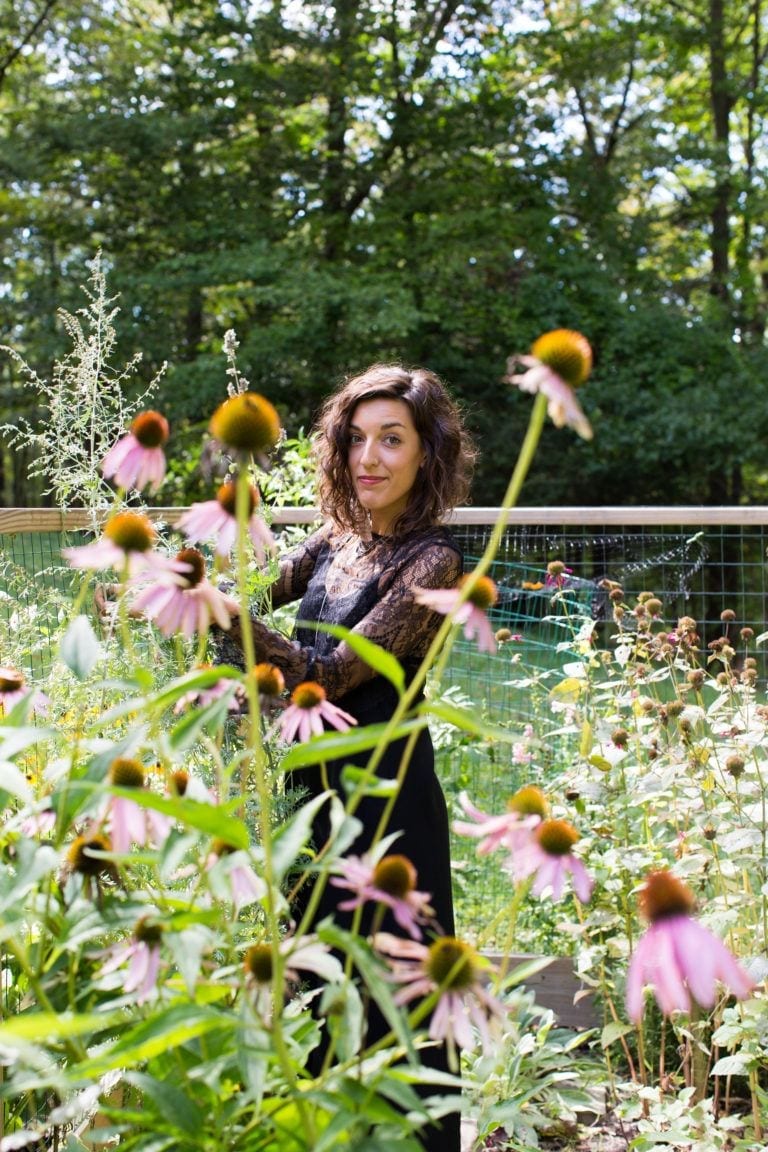
Our draw to ceremony and the desire to find sacredness in the ordinary is an innate human instinct, something we have been seeking out for centuries. Ceremony has been used to demarcate passages of time, seasons coming and going. It has been used to mark rites of passage and to bring communities together. When we arrive to a ceremonial experience, like Wanderlust, we feel the palpable, somatic shifts in our being. It is as if a part of us innately knows we are stepping into an experience that is much bigger than we could have ever imagined. In these sacred spaces, like the yoga classes or workshops at Wanderlust, we find ourselves surrounded by others whose energy, vision, and values mirror and echo our own. And in this space of deep connection to self and other we can let go into the growth and celebration that is here for us.
There are countless ways for us to create ceremony in our everyday lives. When we bring ceremony into our everyday we are able to continue to grow the seeds from our previous ceremonial experiences, allowing them to integrate further into our being.
Read here for Ana Forrest and Jose Calarco’s ideas on how to create ceremony in your everyday life.
Many of us have recently been drawn to ceremonially work with nature and plant medicines to expand our consciousness and create a deeper sense of connection with the world around us. If this has been calling to you then you may have found yourself encountering Cacao or Kava Kava ceremonies. Sound like you? You may be ready to dive into working with these sacred medicines!
A (Very) Brief History of Cacao
Let’s get in touch with our medicine a layer deeper and meet Cacao also known as Theobroma cacao. Cacao is native to Central and South America and is believed to have been first discovered as early as 1200 BCE by the Olmecs, an indigenous tribe from Mexico. Cacao continued to be cultivated and traded by the Mayan tribes of Mexico for centuries and is known as “the food of the Gods” by Mayan people. Cacao was traditionally used in spiritual ceremonies and often times weddings. Cacao is a powerful aphrodisiac and superfood, often times evoking the physical feelings of falling in love! Cacao is said to teach us of the mysteries of love and powerfully opens our hearts.
A (Very) Brief History of Kava-Kava
Kava-Kava or Piper methysticum, is a root from the Pacific Islands that has been consumed ceremonially for over 3,000 years! Kava Kava is a powerful nervine and relaxes us deeply, easing anxiety especially in social settings. This is partially why Kava was was traditionally drank to maintain peace and harmony during tribal gatherings and negotiations. Historically Kava was made by all the people gathered, truly creating an experience of community medicine and connection. Because of Kava’s potency and palpable state-altering effects, like numbing your tongue, Kava has been misunderstood as getting you “high.” Kava is non-narcotic, mild sedative and is non-addictive however, it should not be mixed with alcohol or other substances.
Creating a Ceremony Around Usage
If you are called to the heart-opening medicine of Cacao or the grounded connection Kava-Kava has to offer, then it is important to consciously source, prepare, and consume these medicines as a part of a ceremony.
The first step to creating a ceremony is to connect to our intention. Why are we creating this ceremony? Holding our ceremony not just for our personal desires, but in service of the collective good and healing, is a great way to practice sacred reciprocity. Once you’ve connected to your intention we can begin to bring that into the creation of our sacred space.
When working with sacred plants like, Cacao or Kava, we also need to invite their spirit and wisdom to join us in this space.
There are many ways to connect to sacred space, prayer, mantras, invocations are used in various traditions to evoke a sense of the divine. By speaking our prayers out loud and calling in sacred space, we allow the vibrational resonance that is felt and heard to come into the space and it is as if we cast a circle around us.
When working with sacred plants like, Cacao or Kava, we also need to invite their spirit and wisdom to join us in this space. To begin honoring these plants we can offer a prayer of gratitude to the land which these medicines have come from, recognizing that these plants contain the memory and energy of everything that has taken place on this land. Next we thank the indigenous communities who have tended to these plants and who have kept the wisdom traditions of these plants alive. Finally we might offer a blessing to all the hands that these plants have passed through, from the farmers to the store keeper, who have made it possible for this medicine to be here with you.
From this place of deep connection we can begin to prepare our medicines with intention and love!

To prepare Cacao you will need:
1–1.5 ounces of Cacao paste per person (this is my favorite)
4-5 ounces of liquid per person (water or coconut mylk)
Honey to taste
Traditionally Cacao is also prepared with Cayenne and Vanilla extract. I personally like to add cinnamon, cardamom, and rose powder to taste!
Heat up the liquid, but make sure not to let it boil! Slowly add in your Cacao paste and continuously stir; it will take some time for the Cacao to melt in so you may want to add it in batches. When your Cacao starts to thicken add in your honey and spices; stir some more and serve the Cacao with love.
You may offer your blessings while holding your cup of Cacao, returning to your intention and holding the Cacao at your heart. I like to feel the warmth of the Cacao against my skin, to smell the Cacao and to welcome her in through all my senses. Sip slowly and enjoy this medicine entering into your body and heart. When you’ve finished your cup you may want to journal, meditate, dance and move your body, or go on a guided journey to your heart to connect more. As you transition out of your ceremony make sure to take another moment to say thank you to the Cacao and you may even want to offer some leftover Cacao back to the Earth.
To prepare Kava-Kava you will need:
1–2 ounces of Kava powder per person (this is my favorite)
5–8 ounces of water or nut mylk
Honey to taste
I like to add cinnamon, cardamom, ginger, and vanilla extract! You can also use 1–2 ounces of Apple Cider Vinegar to help dilute the earthy taste.
Place your Kava powder into a French press or tea press; fill the press with either hot water (not boiling) or warmed nut mylk and let steep for 20 to 30 mins. Make sure to vigorously stir your Kava at the beginning and end of steeping it. When your Kava is done brewing add honey, apple cider vinegar and spices to taste.
Similar to the Cacao ceremony you can offer your blessings while holding your cup of Kava. Since Kava is deeply rooting medicine you may want to embark in a grounding meditation, returning to your intention and holding the Kava at your belly or heart. Sip slowly and enjoy this medicine entering into your body, feel your roots and connection to the earth growing.
Because Kava is traditionally a social medicine I recommend creating your ceremony with community. Each of you can add your voices to the circle and share intimately with one another, letting the layers of guardedness and separation melt away. You may want to take time to journal and reflect on your experience. As you transition out of your ceremony make sure to take another moment to say thank you to the Kava and you offer some leftover Kava to the Earth.
The Instinct to Create Ceremony
We all are intimately connected to the instinct to create ceremony. Whether we work with Kava, Cacao or find ourselves in a ceremony space at Wanderlust, the foundations of ceremony are intention and service. Rather than drawing from indigenous wisdom traditions that are outside of our lineages and cultures, I encourage you to create ceremony authentically from your heart, a place of service and love. Taking time to welcome and honor the medicines you are working with and the traditions that have held these medicine for centuries. When we hold our ceremony in service of larger healing for the world, commit to ethical sourcing and giving back to the communities and environments our medicine comes from we are beginning to practice the pillars of sacred reciprocity and right relationship with medicine that truly benefit and help heal the world.
A note on appropriation: Cacao and Kava are sacred medicines that come from indigenous and marginalized communities. Part of practicing sacred reciprocity with these plants means that we need to decolonize our relationship to these medicines. This is a on-going and deep practice to take on and places to start include; honoring the communities and lands these medicines come out of; sourcing ethically and making sure the medicine we buy is fair-trade and the profits are going back to these communities; to show up to our ceremonies not as a way to make money or solely benefit ourselves, but as a way to offer larger healing to the world.
Contraindications: Kava-Kava should not be consumed by people who are pregnant or on medications that affect the liver. Kava should not be mixed with alcohol or other narcotic or sedative substances. Kava should be used in moderation and is not for people under the age of 18. Cacao should not be consumed by people who are pregnant (chocolate is fine!) or people on SSRI medications as it can cause adverse effects. Consult a qualified healthcare practitioner before use if you are pregnant or lactating, have a serious medical condition or are on medications.
—
 Caity Flanagan is a holistic herbalist, Tantric and Shamanic practitioner dedicated to supporting other on the journey of radical embodiment, sensual awakening, and coming home to the Heart. Caity is the co-founder of Embodied Erotic and is the founder of Serpent & Rose, communities dedicated to sharing the teachings of the body and sensuality as gateways to healing trauma and awakening. She has spent the last 5 years teaching internationally about core shamanic practices, earth-based ritual, somatic coaching and Tantra as practices that lead us towards embodiment sensual awakening, and the Heart as the path.
Caity Flanagan is a holistic herbalist, Tantric and Shamanic practitioner dedicated to supporting other on the journey of radical embodiment, sensual awakening, and coming home to the Heart. Caity is the co-founder of Embodied Erotic and is the founder of Serpent & Rose, communities dedicated to sharing the teachings of the body and sensuality as gateways to healing trauma and awakening. She has spent the last 5 years teaching internationally about core shamanic practices, earth-based ritual, somatic coaching and Tantra as practices that lead us towards embodiment sensual awakening, and the Heart as the path.